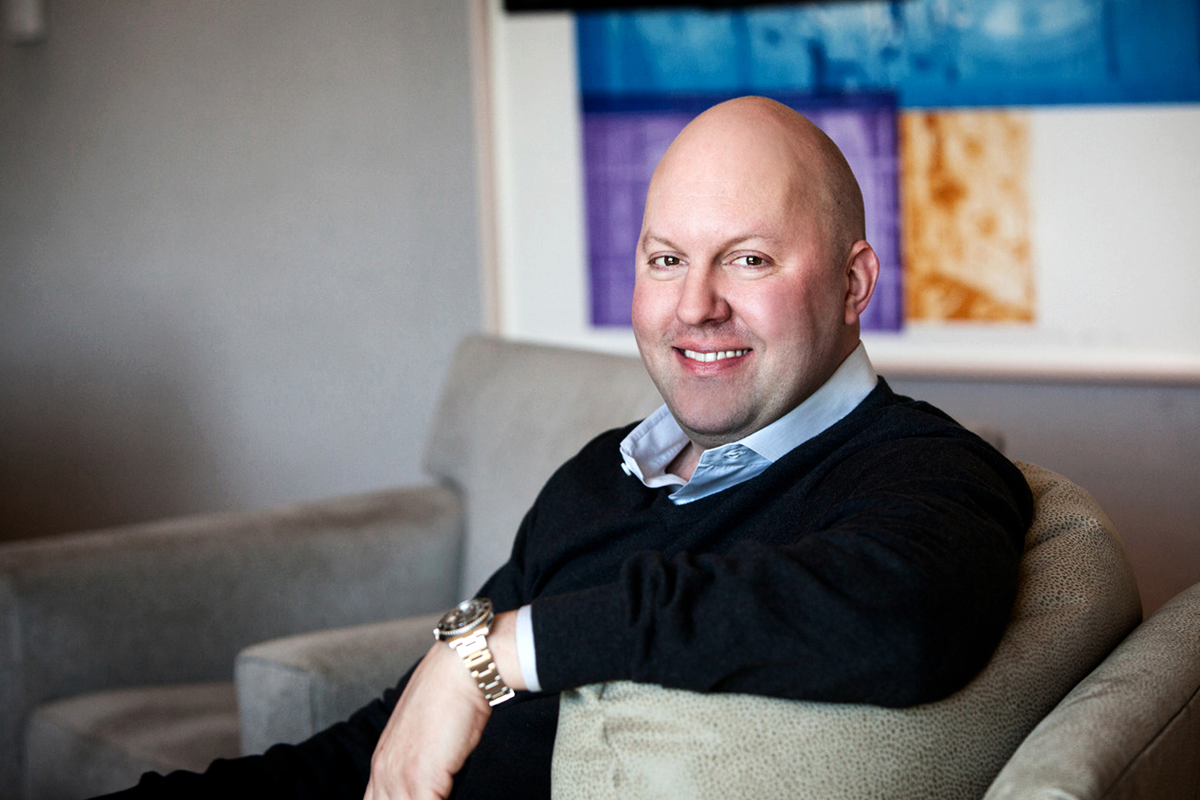
MARK ANDREESSEN
CO-FOUNDER, NETSCAPE, ANDREESSEN HOROWITZ
» BIO: Andreessen, born in 1971, studied computer science at the University of Illinois. Intrigued by the internet—a new phenomenon in the early ’90s—he founded one of the first internet browsers, Mosaic, and went on to cofound Netscape, which was purchased by AOL for $4.2 billion in 1999. In 2009 he would launch venture capital firm Andreessen Horowitz, with a former Netscape employee, Ben Horowitz.
» TAKEAWAY: Know your industry. Andreessen has become one of the most important investors in Silicon Valley. His VC firm has made smart bets on Skype, Facebook and Twitter, to name a few. Moreover, Andreessen uses his blog and Twitter as a pulpit to encourage good behavior on the parts of entrepreneurs and VCs. And when Andreessen has something to say, the industry listens.

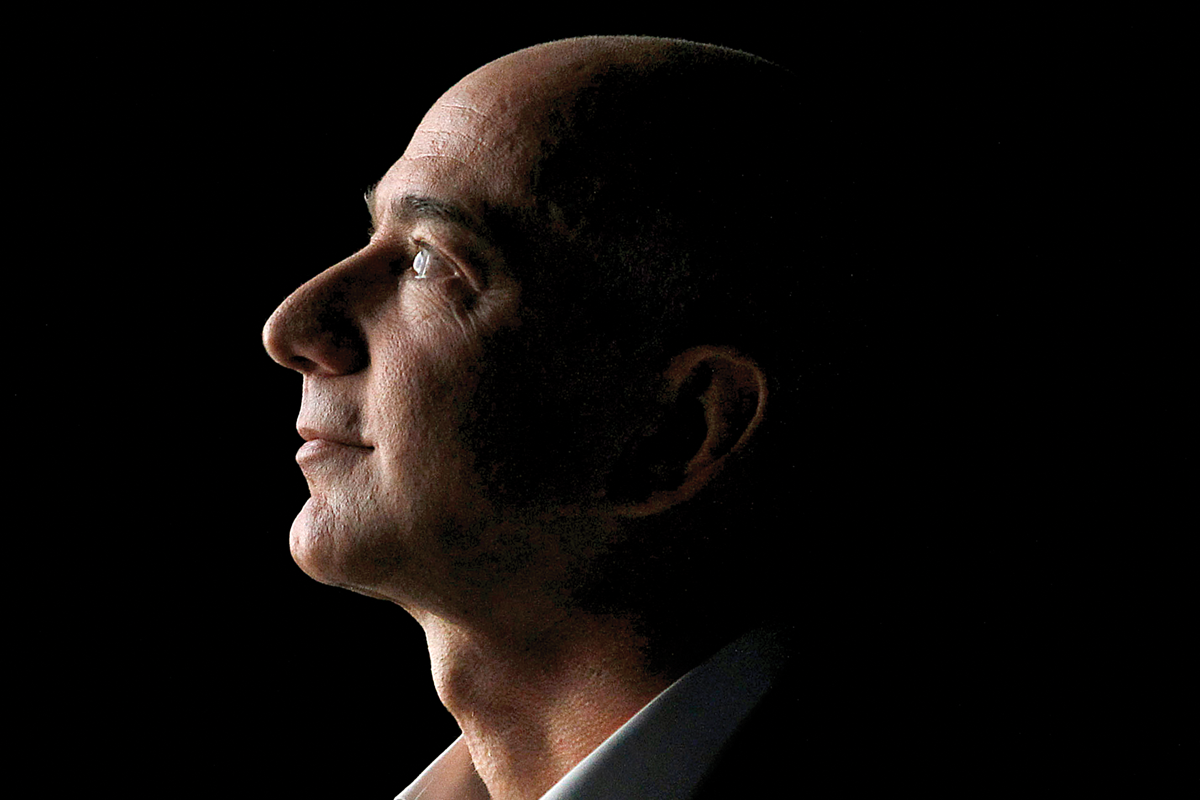
JEFF BEZOS
FOUNDER, AMAZON
» BIO: Born in Albuquerque, N.M., in 1964, Bezos studied computer science and electrical engineering at Princeton. After graduating, he made his way to Wall Street and, while still in his 20s, became a senior vice president at D.E. Shaw. Four years later, in 1994, he quit to start Amazon. Peter Diamandis and Steven Kotler have called Bezos an “exponential entrepreneur”—his business rapidly expands each year.
» TAKEAWAY: Influence the conversation. Bezos’ purchase of the ailing Washington Post for $250 million may have seemed odd to some, but it brought him influence. It also further established Bezos as the world’s most important entrepreneur when it comes to delivery mechanisms: Amazon is now the default marketplace for many Americans, delivering everything from toilet paper to clothes; Amazon Web Services delivers data as well as or better than the competition; and, through the Kindle, Amazon Video and now the Post, Bezos is striving to deliver information, ideas and entertainment better than anyone else. Both the newspaper and the billionaire seem to be benefitting from the arrangement: Subscriptions are up, and Bezos’ own net worth grew by $20 billion in the 14 months before the beginning of 2017.

SARA BLAKELY
FOUNDER, SPANX
» BIO: The creator of Spanx was born in 1971 and grew up in Clearwater, Fla. Blakely scored too low on the LSAT to follow her dream of becoming a lawyer, but after selling fax machines door to door, she realized her talent as a salesperson. At age 27, Blakely recognized the need for Spanx, and so invented them using scissors and a pair of pantyhose. Her big break came when Oprah Winfrey listed Spanx as one her “favorite things.”

» TAKEAWAY: Don’t stop believing. Blakely has become a cult figure among aspiring entrepreneurs because of her humble beginnings and insistence on maintaining total control of her company. She designed the product herself, found a manufacturer to produce it for her and even took on marketing. “I went out on the road and stood in department stores for nine hours a day, lifting up my trouser leg to show customers my tights and holding up pictures of my own bottom, in my white trousers, with and without my product on,” she told the Daily Mail.
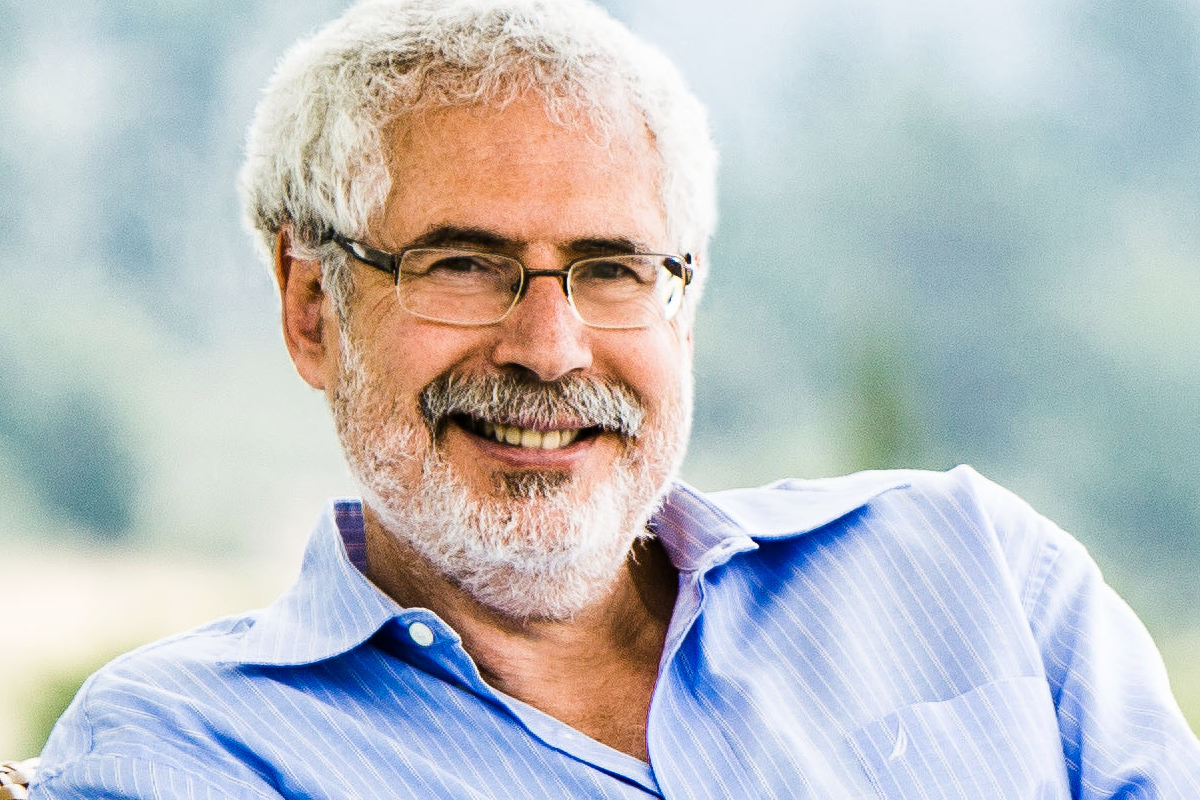
STEVE BLANK
AUTHOR, THE FOUR STEPS TO THE EPIPHANY
» BIO: Serial entrepreneur Blank took four companies public, has a net worth estimated at around $2.5 billion and is considered the dean of Silicon Valley. Born in New York in 1953, he retired from a 21-year career in tech in 1999. Since then, he has made a business out of observing and processing developments in Silicon Valley and packaging those thoughts for eager would-be entrepreneurs to consume.
» TAKEAWAY: If you’re an expert, teach. In a 2013 essay in the Harvard Business Review, Blank described the “lean startup,” an agile firm that “favors experimentation over elaborate planning, customer feedback over intuition and iterative design over traditional ‘big design up front’ development.” In the article, which was widely shared in Silicon Valley and New York, Blank argues that this method of operating is not just ideal for small, young companies, but could also benefit large corporations. Blank also created the Lean LaunchPad methodology, used at top universities such as Stanford and Columbia to teach students how to build a startup that nimbly responds to feedback.
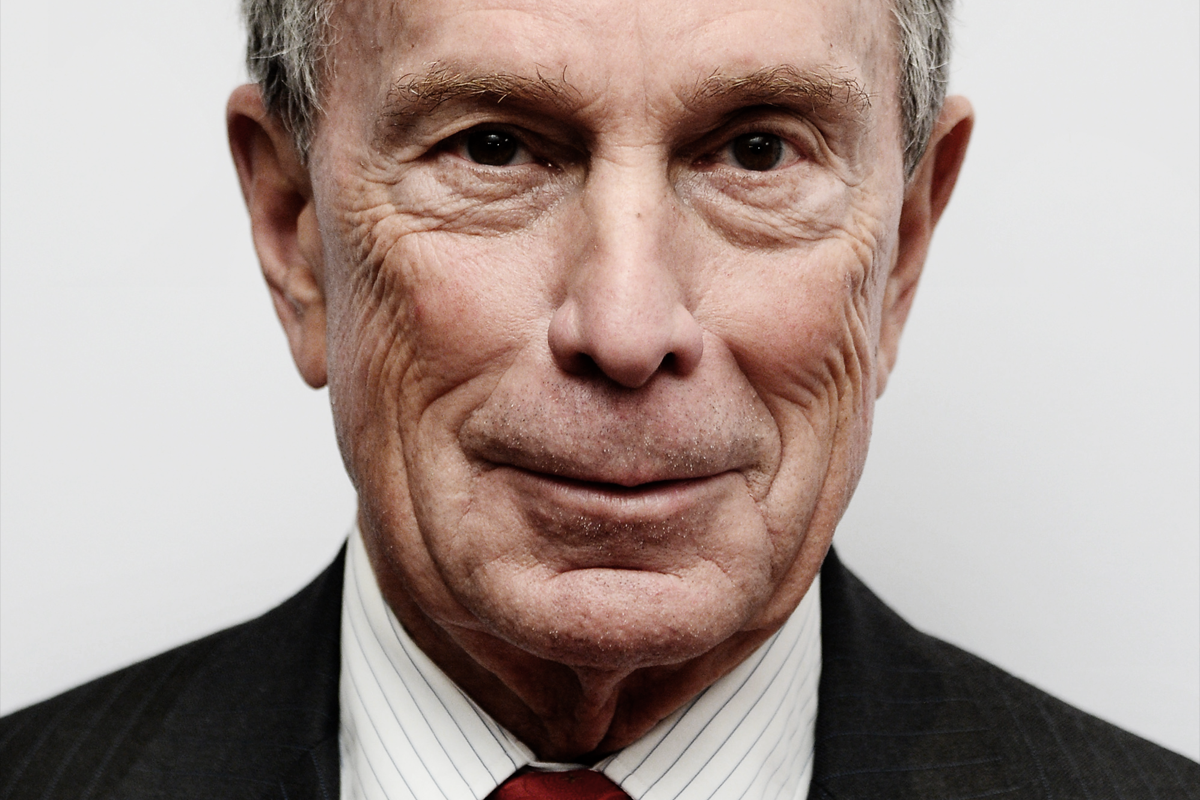
MICHAEL BLOOMBERG
FOUNDER, BLOOMBERG LP
» BIO: Born in 1942 in Boston, Bloomberg attended Johns Hopkins and earned a Harvard MBA in 1966. He moved to New York and joined Salomon Brothers, becoming a partner in 1972. Then, in 1981, he started Bloomberg LP, the company behind the eponymous Bloomberg Terminals, which revolutionized Wall Street by putting detailed financial information at traders’ fingertips. He left in 2002 to pursue a career in politics, serving three terms as mayor of New York before rejoining the company in 2014.
» TAKEAWAY: Cultivate information; facts are valuable. One former Bloomberg executive, in an interview with Politico, described a “schizoid” boss who loved data and the purity it could impose upon the world but also loved influence, in all its messiness. The company mirrors this disposition: It is a well-oiled machine but is not content to serve only financial companies. The company has a vast news-gathering organization that grows and shrinks in size and shifts its priorities as market behavior changes. Wherever there’s a demand for information, Bloomberg is sure to be close by.
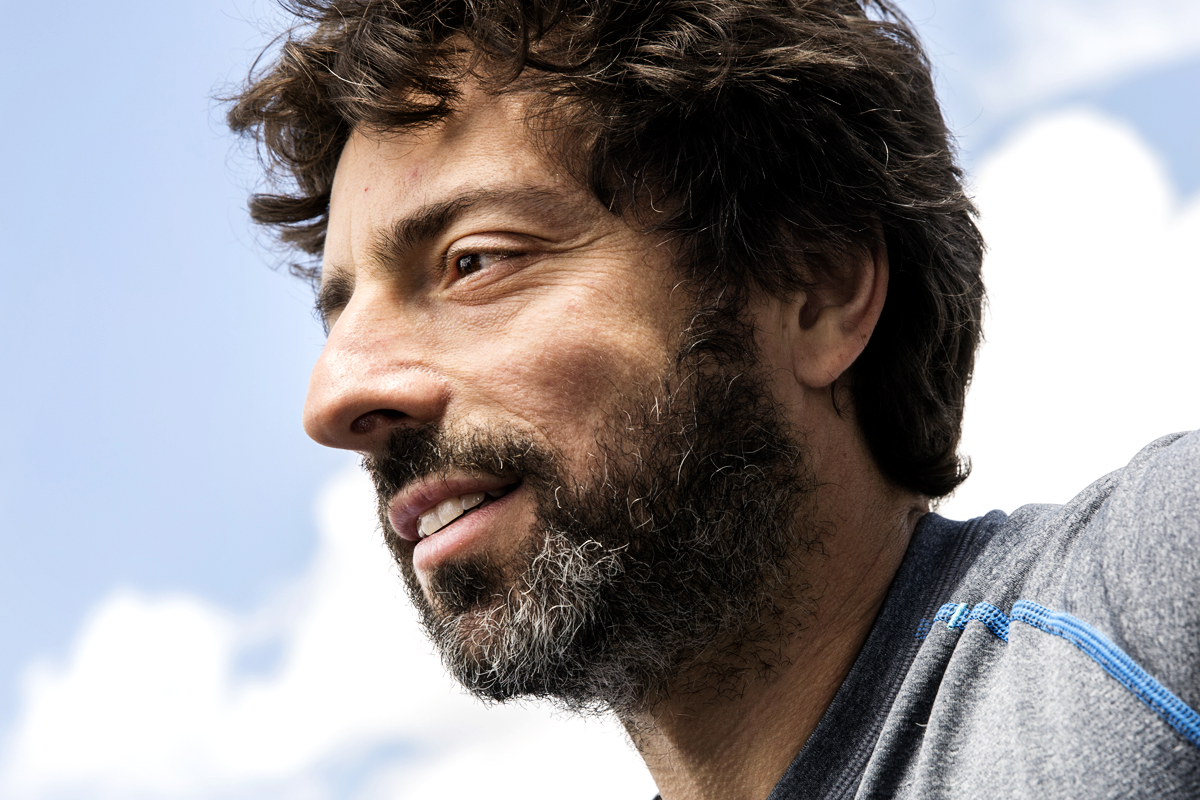
SERGEY BRIN
COFOUNDER, ALPHABET
» BIO: Brin was born in 1973 in Moscow to two Russian-Jewish scientists. The family immigrated to America in 1979 to escape persecution. He studied computer science at University of Maryland and Stanford, where he met Larry Page. The two founded Google—recently renamed Alphabet—in 1998 in a Bay Area garage. The ease and accuracy of Google’s search technology would change the way the world organizes and accesses information.
» TAKEAWAY: Find a partner you can grow with. Page and Brin are known for their complementary relationship. While Page handles the company’s overall direction, Brin, the engineer, goes deep on projects. Several years ago, his focus began to drift from Google’s core business to experimental enterprises and R&D. He now devotes much of his time to Google X—the company’s top-secret experimental technologies division tasked with developing “moon shot” innovations, such as self-driving cars and artificial intelligence.
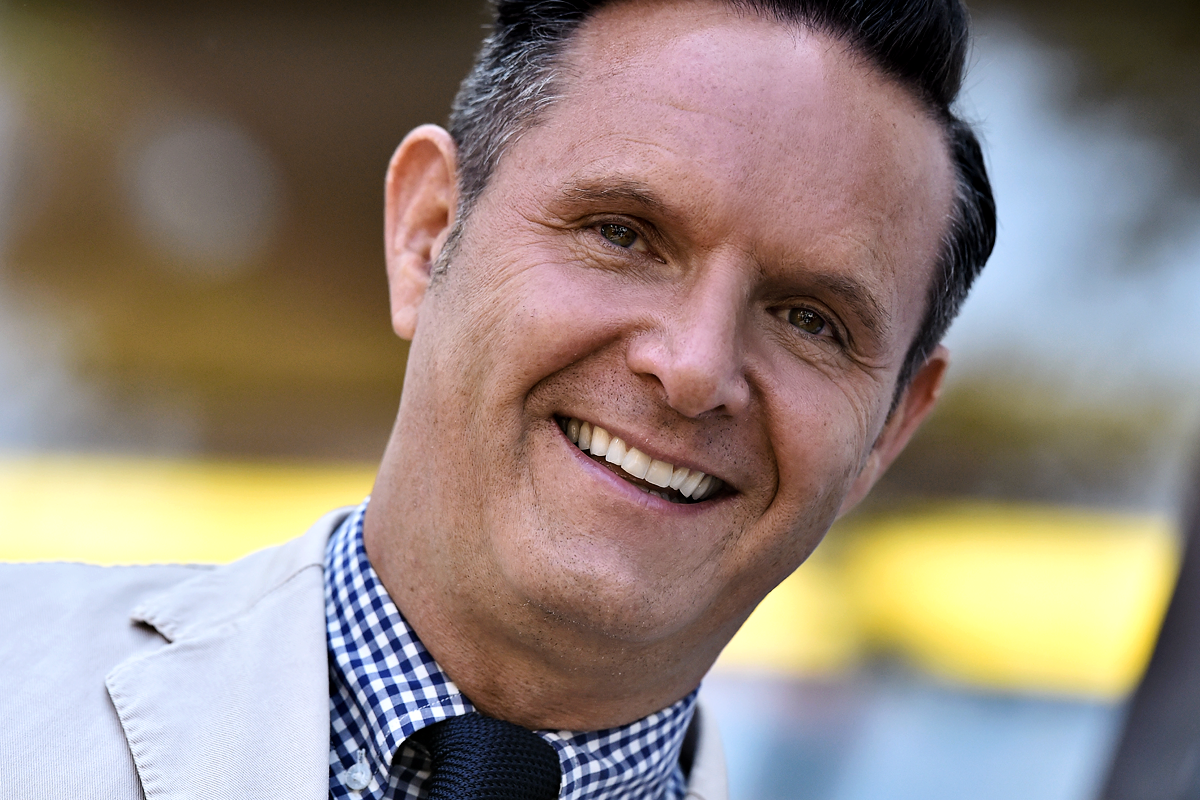
MARK BURNETT
PRODUCER, SURVIVOR, THE APPRENTICE, THE VOICE, SHARK TANK
» BIO: As creator of programs including Survivor, The Voice, Sarah Palin’s Alaska, Shark Tank and The Apprentice, Burnett has shaped pop culture through reality TV. After years as a British paratrooper, the London-born Burnett moved to California in 1982 and sold T-shirts on Venice Beach. His TV career took off with the premiere of Survivor in 2000. In 2015, he became the president of MGM Television.
» TAKEAWAY: Reality can be what you make it. Burnett was either tremendously lucky or exceptionally prescient with Survivor, which turned reality TV into the perfect formula for the age of social media and oversharing. The ability of reality TV to make anybody a celebrity using merely their own ego and antics was arguably responsible for the surprise election of Donald Trump, the original star of The Apprentice, as U.S. president in 2016.
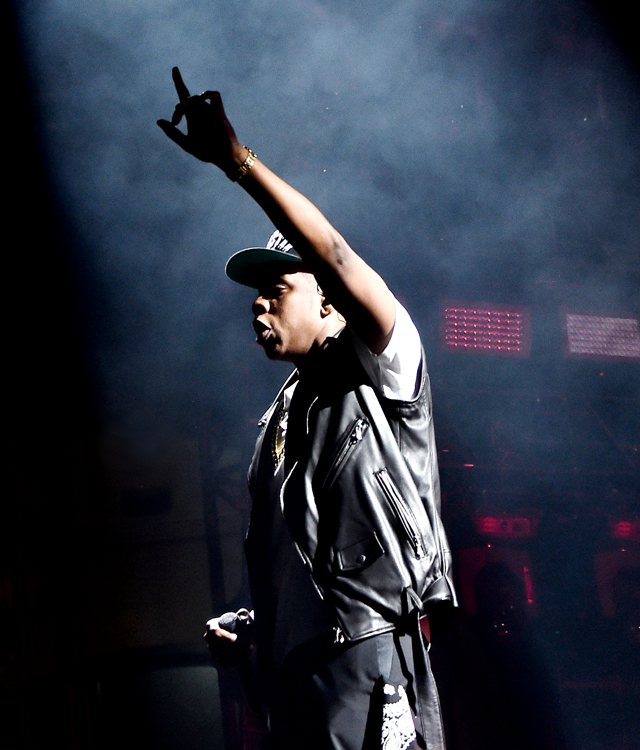
SHAWN CARTER
FOUNDER, ROC-A-FELLA RECORDS
» BIO: Carter, now known as Jay Z, was born in 1969 and grew up in Brooklyn’s Marcy Projects during some of New York’s roughest years. He didn’t release an album until age 26—relatively late for an aspiring rapper. To get his music to an audience, he founded his own label, Roc-A-Fella, and bought streaming music service Tidal for $56 million; in January 2017 Carter sold 33 percent of Tidal to Sprint for $200 million.
» TAKEAWAY: You are your own most valuable asset. With music as his base, Carter has expanded into all realms of entertainment. His talent management and marketing firm, Roc Nation, reps the likes of Rihanna and DJ Khaled and athletes including CC Sabathia and Kevin Durant. Ultimately, though, Jay Z is influential because of the example he sets for how to become a personal brand. As he boasts in “Empire State of Mind,” he made “the Yankees hat more famous than a Yankee can.”
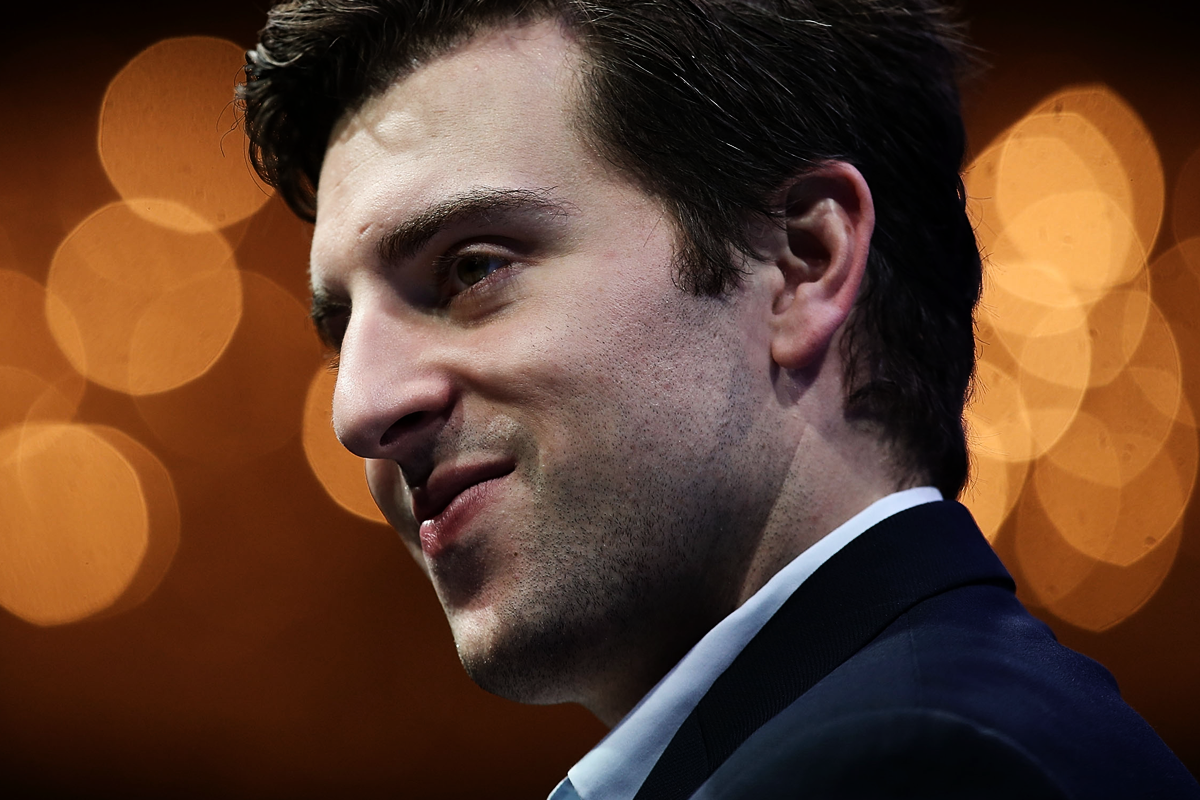
BRIAN CHESKY
COFOUNDER, AIRBNB
» BIO: Founded in 2008, Airbnb now has more than 40 million users. It started when Chesky and his roommate, Joe Gebbia, then broke art school graduates, decided to rent out floor space in their apartment. They eventually launched a website to allow others to do the same. The site graduated from the Y Combinator startup incubator and got its first round of venture capital funding in 2010.
» TAKEAWAY: Small ideas can become big things. Born in Niskayuna, N.Y., in 1981, Chesky has clashed with the law in a number of cities, including New York, thanks to the company’s tendency to enter markets on the fly and deal with the fallout later. Yet Airbnb is also one of the first American companies to enter Cuba in a big way, thanks to deft government negotiations, and it’s become a model for others wishing to do business there.
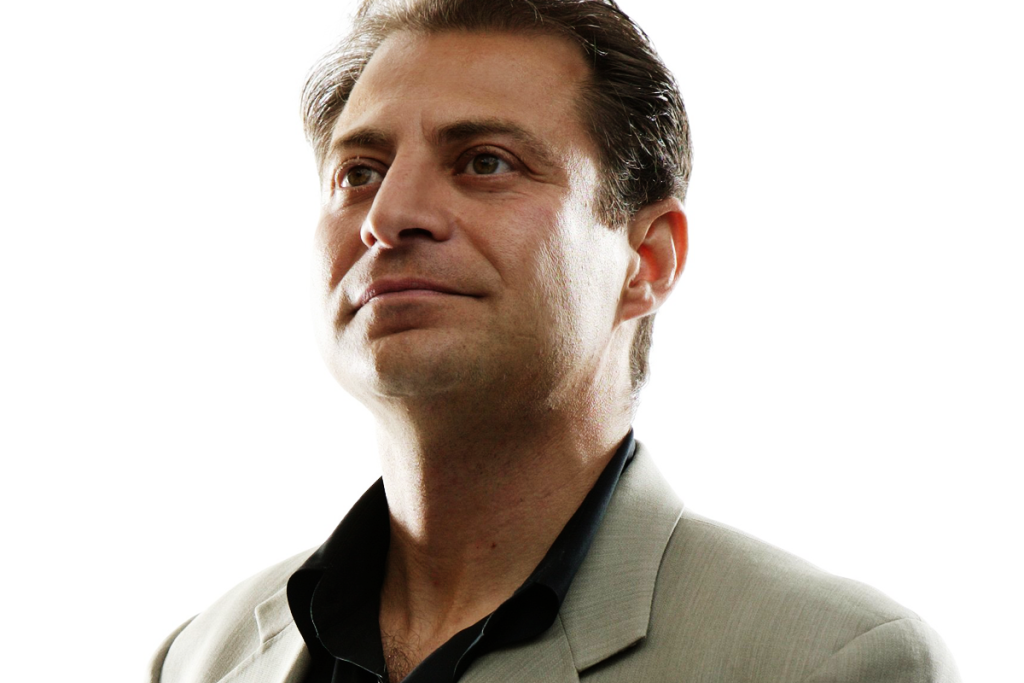
PETER DIAMANDIS
FOUNDER, XPRIZE FOUNDATION; COFOUNDER, SINGULARITY UNIVERSITY
» BIO: Born in New York in 1961, Diamandis is a well-educated man—he has degrees in molecular genetics and aerospace engineering from MIT and an MD from Harvard—and he puts his brain to work trying to inspire positive change and to communicate that optimism to all. In 1996 he founded the XPrize Foundation, a nonprofit that gives entrepreneurs money if they meet certain goals that benefit humanity. He also heads Singularity University, which educates young entrepreneurs and provides the tools needed to address “humanity’s grand challenges.”
» TAKEAWAY: Strive for a possible future, not the most likely future. Diamandis inspires entrepreneurs to look to the future and pursue seemingly impossible dreams, from commercializing space to solving the challenges of aging. Few institutions shape the zeitgeist of Silicon Valley more than Singularity University, making Diamandis a sort of techie Socrates.
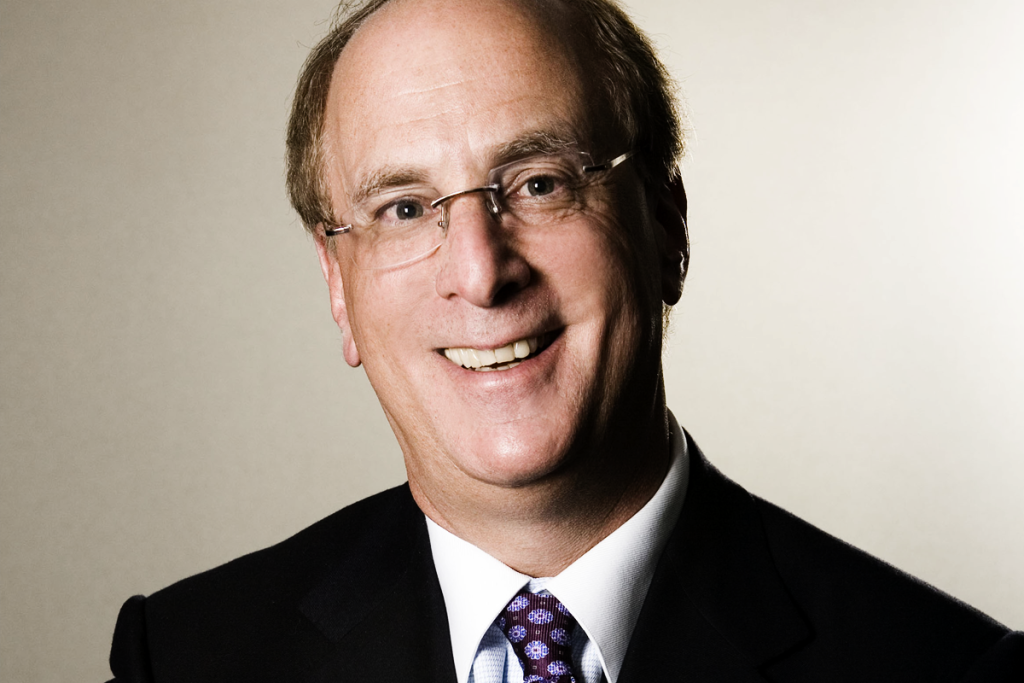
LARRY FINK
CEO, BLACKROCK
» BIO: Fink was born and bred in Los Angeles, earning his MBA from UCLA in 1976. After a stint at First Boston—and blowing $100 million on bad trades in 1986—he founded BlackRock with friends in 1988. It went public in 1999, and today it is the world’s largest asset manager.
» TAKEAWAY: Mistakes can be your greatest teachers. BlackRock’s business success has come from Fink’s obsession with managing risk. As the dust has settled since the 2008 financial crisis, BlackRock has emerged as one of the only financial institutions everyone can agree is trustworthy. The firm’s approach is data-driven and methodical, and as its index funds have come to dominate the market, Fink has become a spokesperson for good behavior in the financial industry. He is known in D.C. and New York for careful analysis and balanced decision-making.
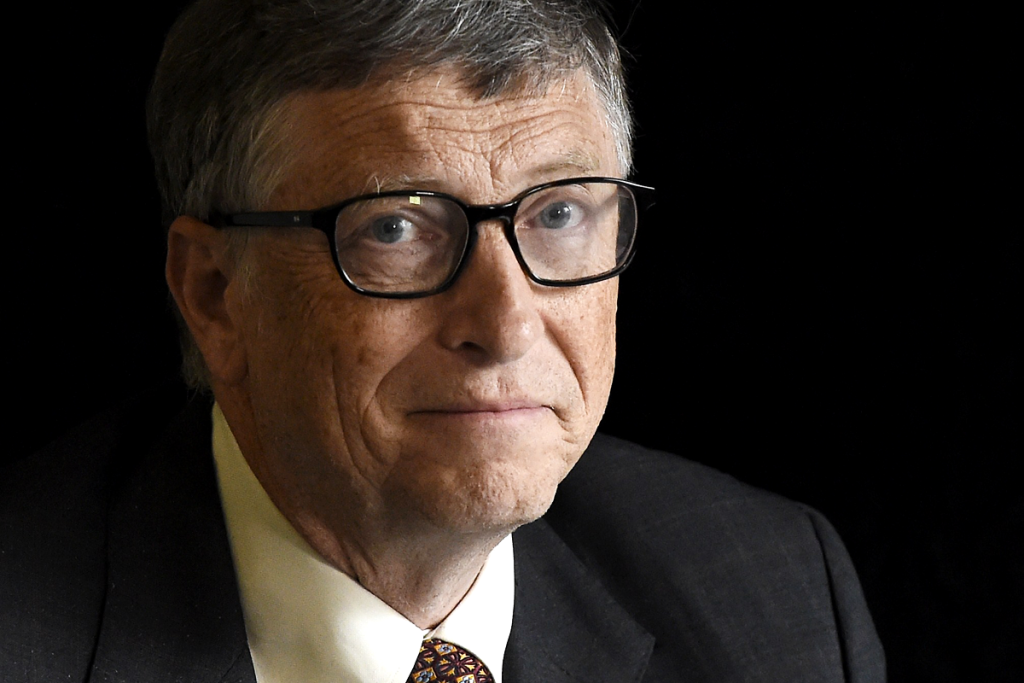
BILL GATES
COFOUNDER, MICROSOFT
» BIO: Gates has jostled for first place on the list of the richest people in the world for decades, and, most of the time, he’s come out on top. Born in Seattle in 1955, Gates cofounded Microsoft with Paul Allen in 1975. The company revolutionized the world in a few short years by making computer technology massively accessible to ordinary people.
» TAKEAWAY: Don’t forget the basics. While other technological masterminds of our era have occupied themselves with the customer experience, Gates has always focused on the basics. At his core, he was and is a coder, he says. “I start with architecture, and Mark [Zuckerberg] starts with products, and Steve Jobs started with aesthetics,” he told Rolling Stone in 2014. And the world would stop turning without Word, Windows and Excel.
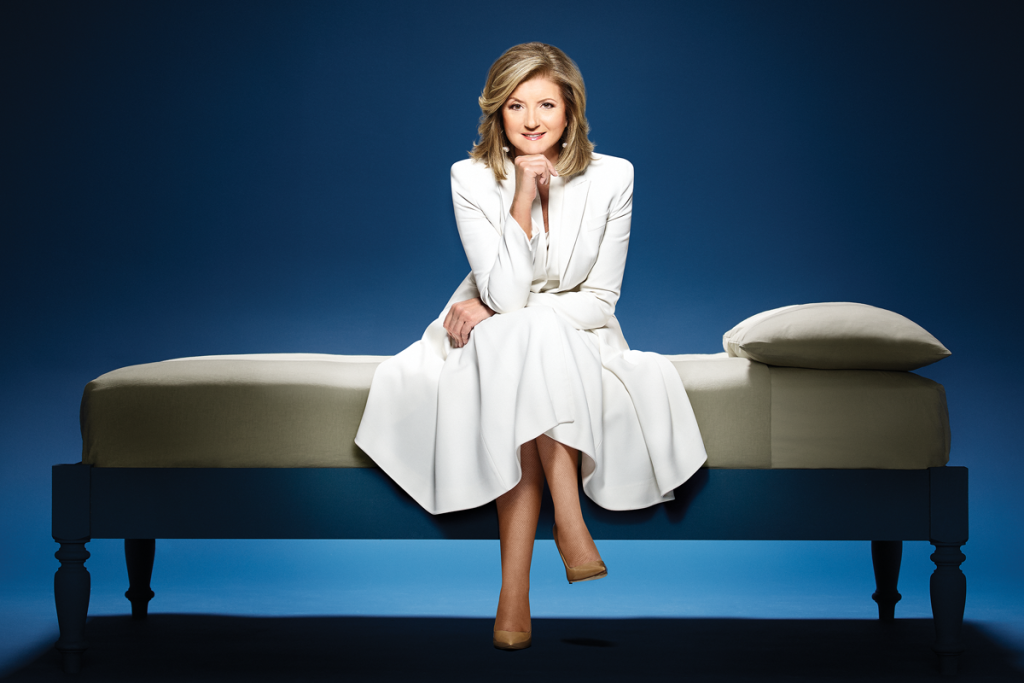
ARIANNA HUFFINGTON
FOUNDER, THE HUFFINGTON POST
» BIO: Born in Greece in 1950, Arianna Stasinopoúlou studied at Cambridge, where she headed the debate club the Cambridge Union. After graduating and writing in London, she moved to America where, in 1986, she married Ronald Reagan’s deputy assistant secretary of defense, Michael Huffington. The two divorced in 1997. Known for her conservative views, she became more liberal through the ’90s. In 2005 she founded the Huffington Post as a progressive answer to the conservative Drudge Report. AOL bought HuffPo in 2011 for $315 million.
» TAKEAWAY: Reject orthodoxy when it isn’t working. The internet upended the legacy-media business, and Huffington was the first to discover how to build a large and successful media company that turned a profit online. While its bread-and-butter was aggregated content, the Huffington Post developed into a mainstream source for reported news, and Huffington has become a beacon for those who believe new media can actually make money.
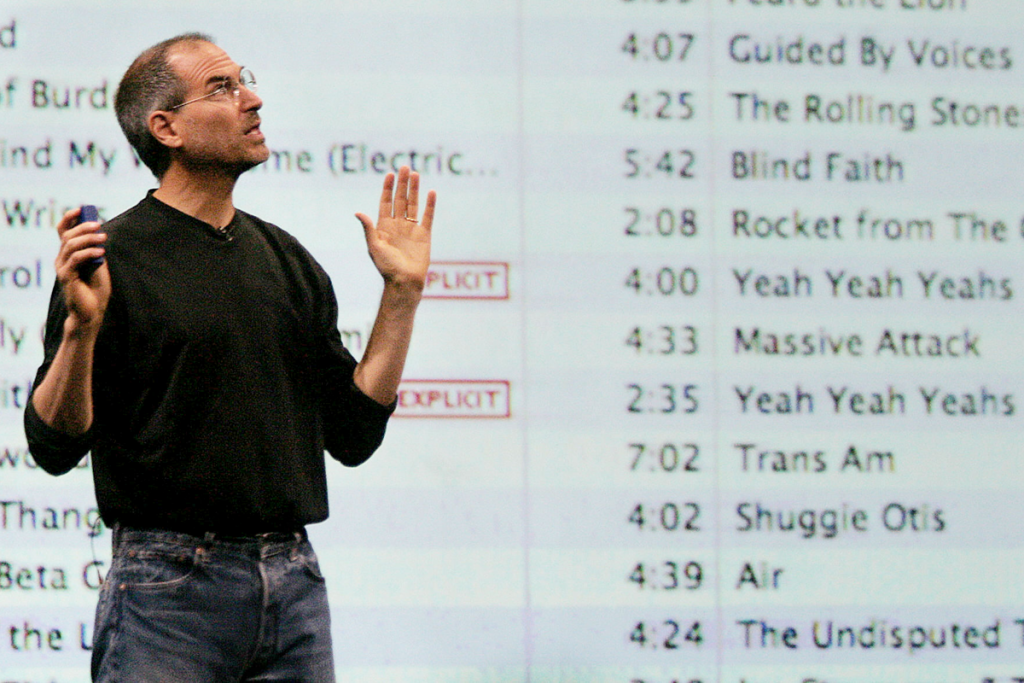
STEVE JOBS
COFOUNDER, APPLE
» BIO: Born in San Francisco in 1955, Jobs started Apple Computers with Steve Wozniak in 1976. A decade later, the two parted ways when Jobs left the company, but he returned in 1997 to turn it around—and he changed our relationship with tech and the internet with the creation of the iPhone and iPad. He died in 2011 following a battle with pancreatic cancer.
» TAKEAWAY: Design matters, even when you can’t see it. It always came first for Jobs. “Customers don’t know what they want until we’ve shown them,” he famously said. His obsession with detail and careful design—and his ability to wow an audience of even the most skeptical observers—has inspired entrepreneurs ever since.
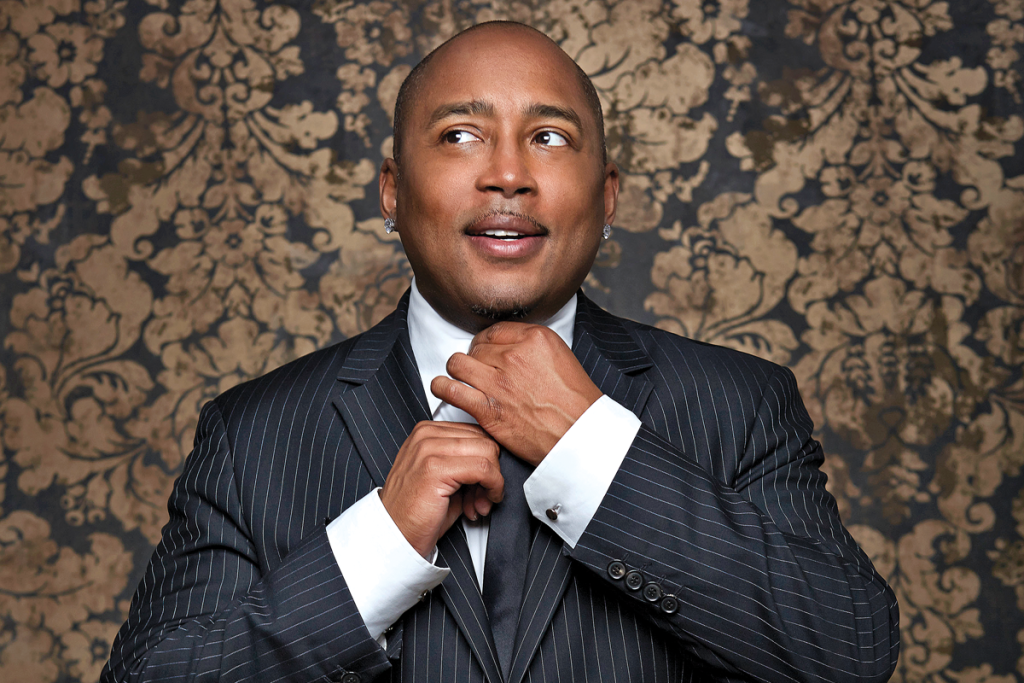
DAYMOND JOHN
FOUNDER, FUBU
» BIO: John was born in 1969 and grew up in Queens, New York. While working at Red Lobster in 1992, he founded hip-hop apparel company FUBU—the name originally stood for “Four Urban Brothers United.” (The acronym was later assigned a new meaning: “For Us, By Us.”) The company’s heyday came in the late 1990s, after John snuck his products into a nationally televised Gap ad—an early instance of guerilla marketing—and brokered a deal with Samsung’s textile division to underwrite his manufacturing costs. His net worth is at least $250 million today.
» TAKEAWAY: Build many platforms, so you can always reach your audience. John has used his success to act as an advisor and archetype for aspiring entrepreneurs. In his best-selling book, The Power of Broke, he tells stories of entrepreneurs who started with nothing and used grit and commitment to build business empires. As a Shark Tank panelist, his no-nonsense approach is now broadcast nationally.
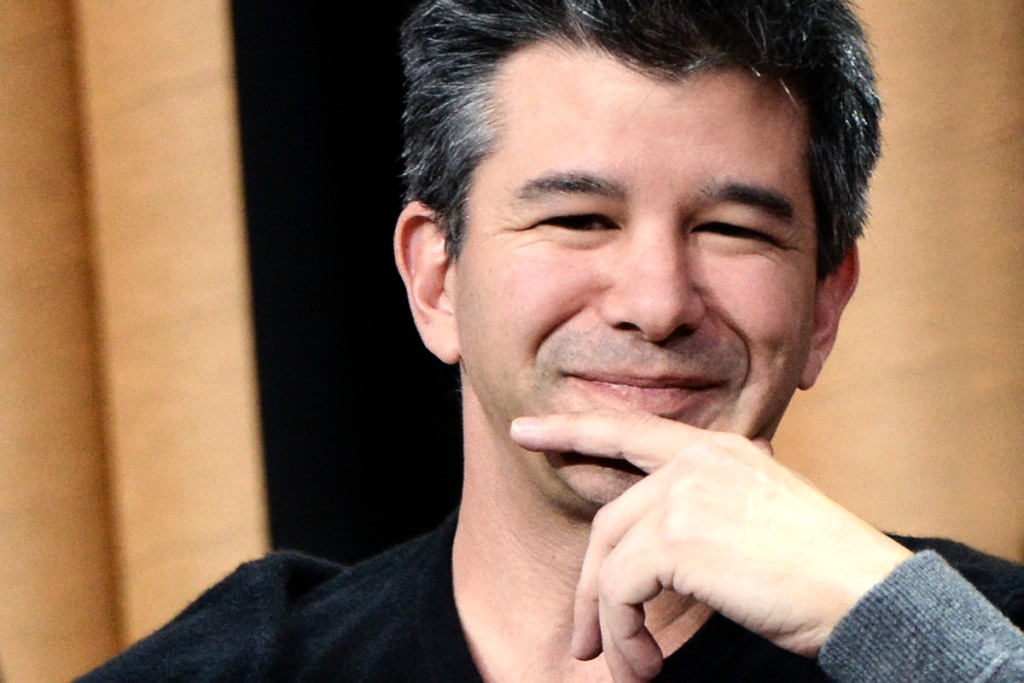
TRAVIS KALANICK
COFOUNDER, UBER
» BIO: In classic Silicon Valley fashion, Kalanick dropped out of UCLA in 1998 to work on a tech idea. But his Napster-like file-sharing company, Scour, got him sued for a quarter of a trillion dollars in 2000, and he filed for bankruptcy. His next company, Red Swoosh, another file-sharing firm, sold for $19 million in 2007. He came up with the idea for Uber in a conversation with Garrett Camp, cofounder of StumbleUpon. The two imagined it as a “timeshare for limousines.”
» TAKEAWAY: Turn problems into opportunities. Uber has already changed the face of urban travel, and along with Airbnb it ushered in the sharing economy. In what he calls “jam sessions,” Kalanick works with his team to sort out the kinks that have been discovered in Uber’s systems, finding ways to eliminate inefficiencies or turn them into ideas for improvements. Uber’s big move in 2016 was to start eliminating one major inefficiency in its system: humans. Driverless Uber cars launched in Pittsburgh to much fanfare, a phenomenon that was celebrated by Silicon Valley’s futurists but sent shivers down the spines of those who fear a future in which automation makes human labor obsolete.
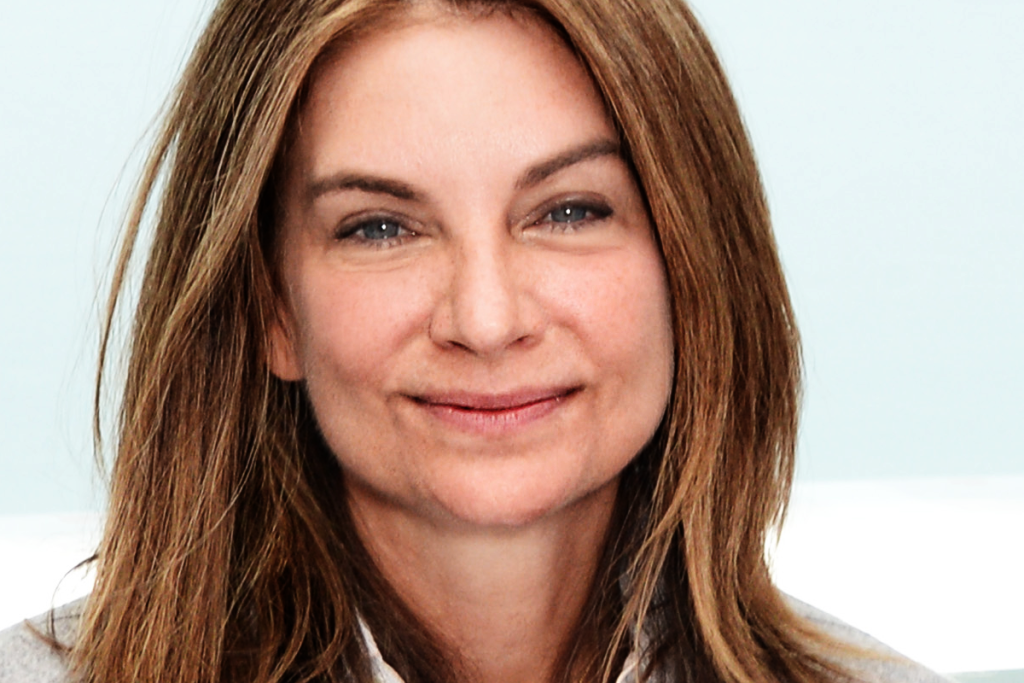
NATALIE MASSENET
FOUNDER, NET-A-PORTER
» BIO: Born in Los Angeles in 1965, Massenet was a writer for Women’s Wear Daily then moved on to Tatler before going out on her own in 1998 to set up Net-a-Porter, the world’s first website for purchasing designer clothes. It launched in 2000. She’s also head of the British Fashion Council, a group that evangelizes British designers around the world.
» TAKEAWAY: Change, though often uncomfortable, is good. Prior to Net-a-Porter, the thinking was that luxury, especially designer clothes, couldn’t work in an e-commerce setting. Massenet rejected that thinking outright, and the company flourished. Net-a-Porter merged with Yoox Group in 2015, with a valuation of around $1.4 billion, and Massenet left the company, though not the fashion world. One year later, in September 2016, her non-compete agreement expired. She’s rumored to be a candidate to succeed Anna Wintour as the next editor of Vogue.
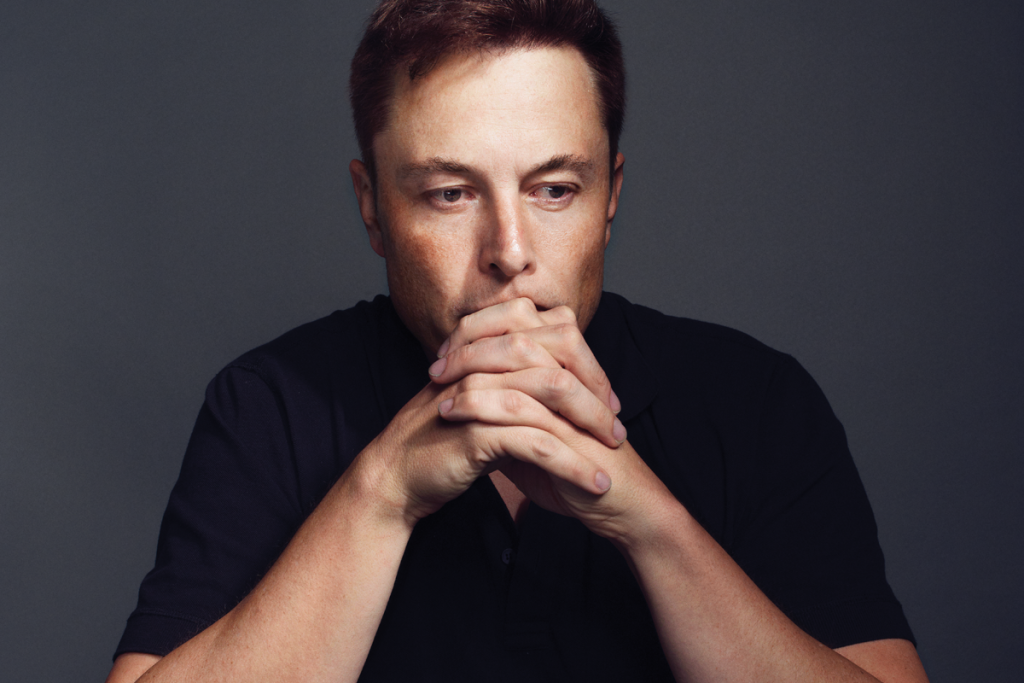
ELON MUSK
FOUNDER, SPACEX; COFOUNDER, TESLA; CHAIRMAN, SOLARCITY
» BIO: Musk was born in South Africa in 1971 and grew up reading science fiction—a preference that would inform his worldview and career. After moving to the U.S., he made a series of smart decisions and became a millionaire in his 20s: He created the online city guide Zip2, which was purchased by Compaq in 1999 for $307 million, and X.com, an online payments site that became PayPal and was acquired by Ebay for $1.5 billion. He founded private rocket company SpaceX in 2002 and electric car company Tesla Motors in 2003.
» TAKEAWAY: Aspire to do the impossible. Musk has created himself in the mold of a visionary from a science fiction novel. In 2012, he launched the first commercial spacecraft to journey to the International Space Station. Tesla Motors is making eco-friendly vehicles sleek and cool. He has told interviewers that he hopes his children grow up with the opportunity to live on another planet and is working tirelessly to make sure his companies facilitate those tech innovations. Along the way, he has inspired countless entrepreneurs to pursue their greatest ambitions.
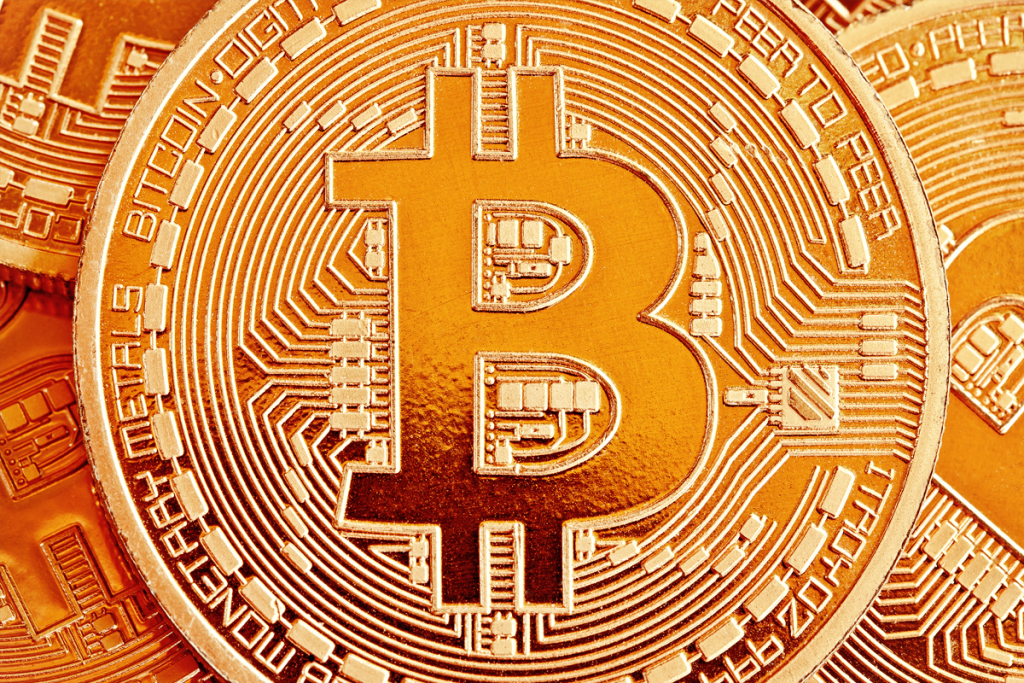
SATOSHI NAKAMOTO
CREATOR, BITCOIN
» BIO: No one really knows who Satoshi Nakamoto is. He may be one person or several, or he may be a she. What we do know is that Nakamoto created the cryptocurrency Bitcoin. The search for Nakamoto’s true identity has fascinated techies and journalists, and last year, Australian computer scientist Craig Wright became a leading candidate. In 2016, Wright produced enough evidence to convince Gavin Andresen, chief scientist of the Bitcoin Foundation, that he was the man in question. But then Wright vanished.
» TAKEAWAY: Anything—even money—can be disrupted. While the debate over Nakamoto’s true identity is, for many nerds, an enthralling mystery, it also is an important economic question. As technology journalist Adrian Chen pointed out last May in the New Yorker, Nakamoto holds nearly $500 million worth of bitcoin. Were he to unload it quickly, the markets for the notoriously unstable currency could fluctuate dangerously. Perhaps of greater impact than its use as a currency, though, is Bitcoin’s technological underpinning, blockchain. This technology is now transforming the way traditional financial institutions maintain records and do business behind the scenes.
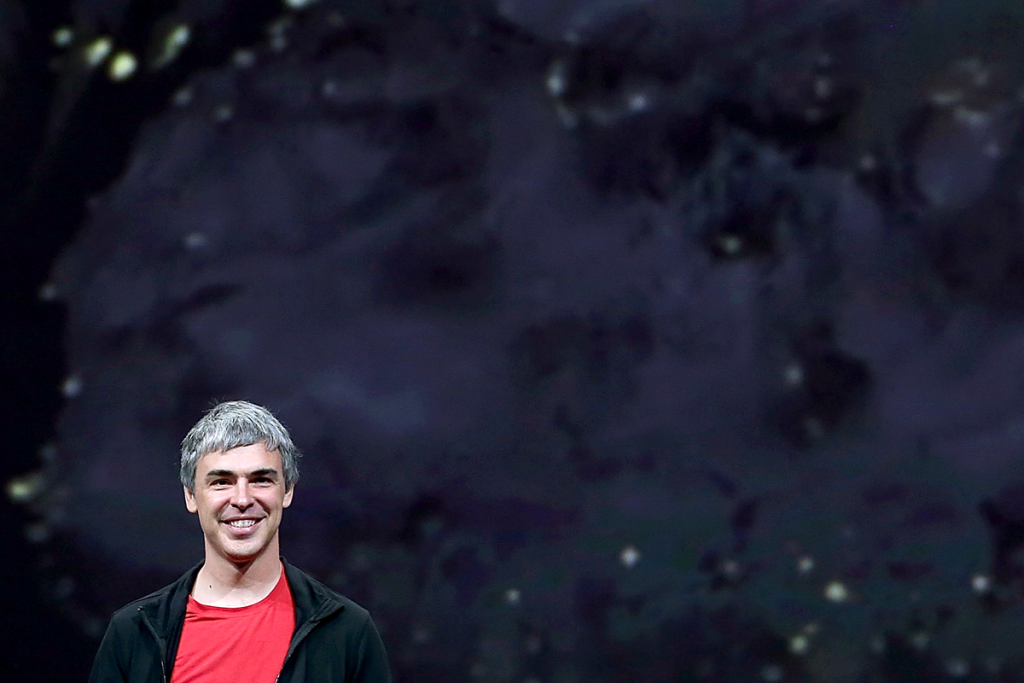
LARRY PAGE
COFOUNDER, GOOGLE; CEO, ALPHABET
» BIO: Page was born in 1973 to two computer scientists and grew up in Michigan. His role at Google has been to decide which direction to take the company. After its success in the 2000s—Google became a trusted brand while simultaneously finding a lucrative model for monetizing search—Page and cofounder Sergey Brin cast a wider net. Now Alphabet, the conglomerate that owns Google, has Page as CEO, which means he has his hands in many different projects at once.
» TAKEAWAY: Support your team, and they’ll support you when it counts. Page’s grandfather was a pipe fitter for a Chevy plant in Flint, Mich., where he was an early organizer for the United Auto Workers; his grandfather’s progressive background influenced Page’s own values. He’s a big proponent of Google’s famously benefit-rich working environment, complete with sleep pods, fancy food and high pay; the way Google treats its workers has set the baseline for the tech industry.
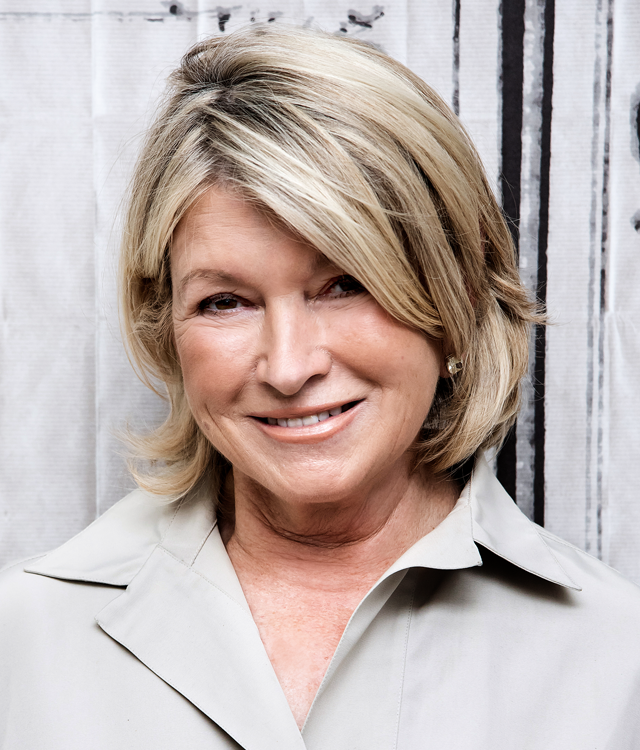
MARTHA STEWART
FOUNDER, MARTHA STEWART LIVING OMNIMEDIA
» BIO: Starting her career as a stockbroker, the Jersey City, N.J., native entered the public consciousness after publishing dozens of books, beginning in 1982, on cooking and entertaining. By the ’90s she had become an icon for women in business, thanks to her multifaceted, vertically integrated lifestyle empire that has included TV shows, magazines, books, e-commerce and in-store merchandise. In 2004, she resigned from her company after being charged with insider trading and convicted of obstruction of justice, resulting in a five-month prison sentence. The irony of the maven of domesticity behind bars attracted widespread attention, but Stewart has since rebounded spectacularly.
» TAKEAWAY: Don’t be afraid to start over. In 2016, Stewart pushed the borders of her brand by launching a cooking show on VH1 with an unlikely cohost: Snoop Dogg. She also published her 86th book. For a 75-year-old ex-con, she has a lot of energy—and sets the gold standard for brand maintenance and reinvention.
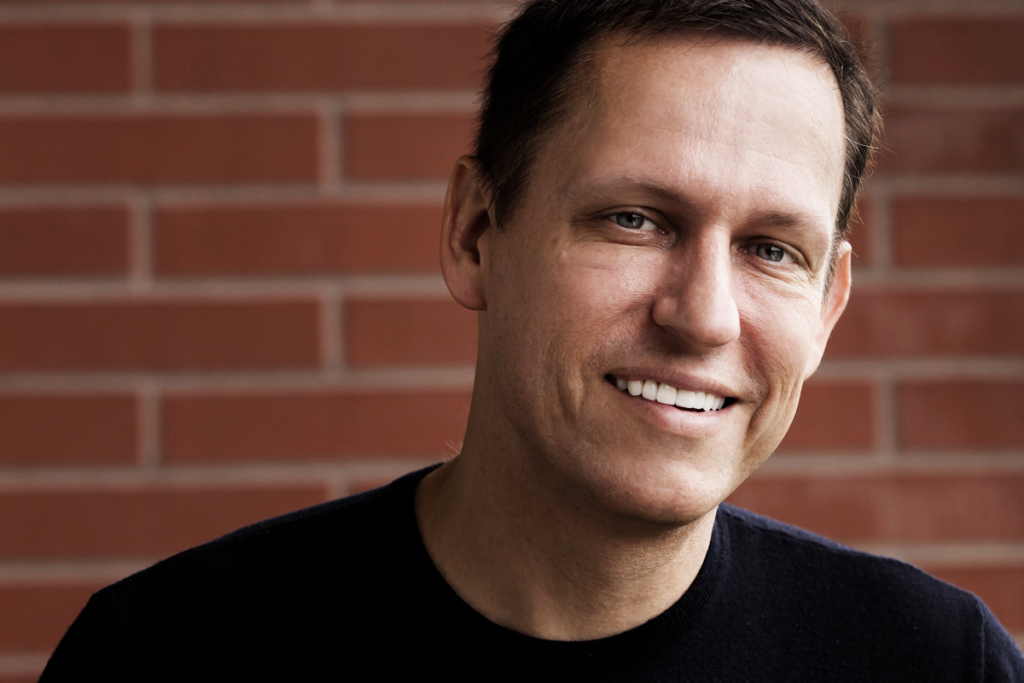
PETER THIEL
COFOUNDER, PAYPAL; FOUNDER, PALANTIR
» BIO: Thiel may be the most successful technology investor in the world. Born in Germany in 1967 before moving to Cleveland, Thiel heads both a hedge fund (Clarium Capital) and a venture capital firm (Founders Fund). Along with Elon Musk, he founded PayPal, which Ebay bought in 2002 for $1.5 billion. Thiel made $55 million, $500,000 of which would be the first outside investment in Facebook, giving him another huge payday later on. In 2004, he founded Palantir, a firm specializing in big-data analysis that contracts extensively with the U.S. government.
» TAKEAWAY: The world is what you make of it. Thiel envisions the reality he wants to live in, and he brings us all along for the ride. He is known for making unorthodox and ultimately profitable decisions, often based on his love of logic, his libertarian ideals and his desire to drag humanity out of what he sees as a slump and toward his idea of a better future. Thiel’s most recent gamble was on presidential candidate Donald Trump, who made room on his transition team for former Palantir employees and Thiel himself.
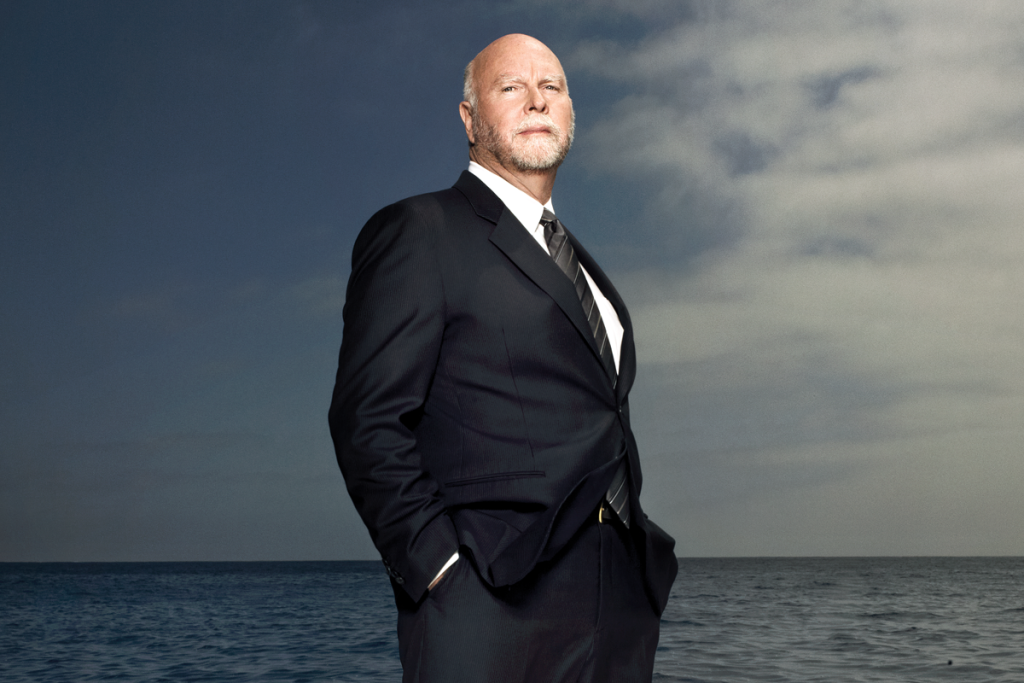
CRAIG VENTER
FOUNDER, CELERA; COFOUNDER, HUMAN LONGEVITY INC.
» BIO: The first person to sequence the human genome, Venter also created the world’s first synthetic life form, a synthetic cell that contains the smallest genome of any known, independent organism. But the Salt Lake City native is also a businessman; much of his scientific work has been carried out through profit-producing companies that he founded. The former surfer and Vietnam War vet is now working on extending humanity’s productive lifespan.
» TAKEAWAY: Success starts with challenging yourself. Venter’s work to extend life is based in his own understanding of its frailty. At 70, he has spent a bunch of time in the sun, and his family has a history of cancer. It’s no coincidence that the top priority for his latest project, Human Longevity Inc., is to understand not just how aging works, but why many diseases—such as cancer and Alzheimer’s—come hand-in-hand with advanced age.
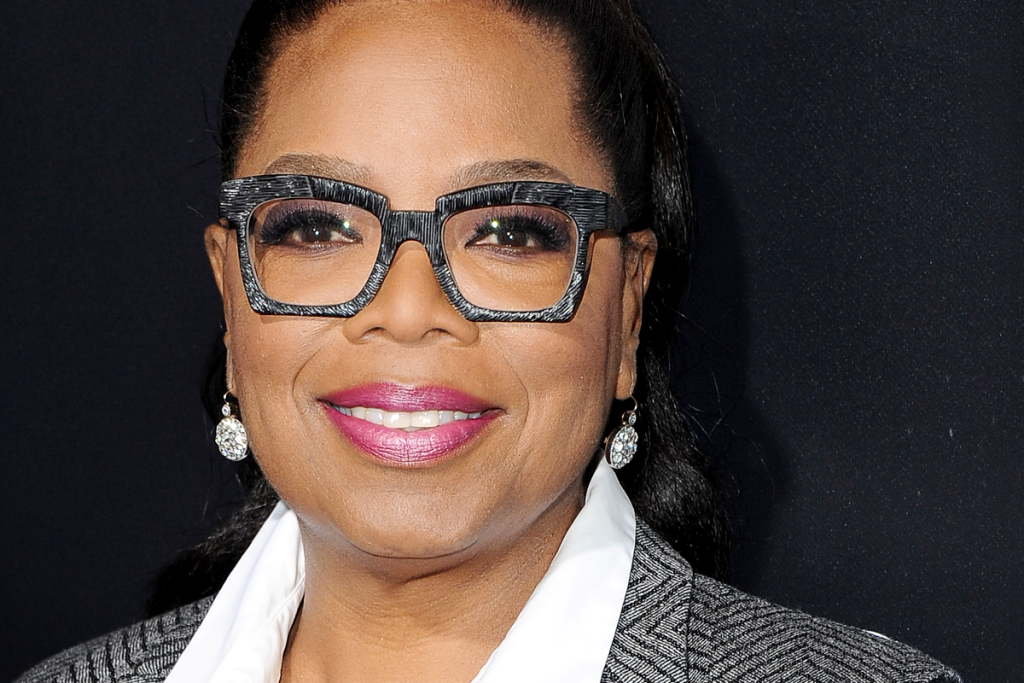
OPRAH WINFREY
FOUNDER, THE OPRAH WINFREY NETWORK
» BIO: Winfrey was born and raised in rural Mississippi, and moved to Baltimore in 1976 at the age of 22. She hosted local TV talk shows before launching The Oprah Winfrey Show in 1986. The program was nationally syndicated and made $125 million in its first year. Through the 1990s, she became one of the media’s most valuable brands, and her imprimatur could turn a book into an instant best seller or send a product flying off the shelves. In 2011, she left ABC to launch her own television empire, the Oprah Winfrey Network.
» TAKEAWAY: Be optimistic. When Winfrey launched her own network, she was the first person to create an entire television channel dedicated to her own programming and worldview. “OWN is not just a symbolic move to cable from broadcast,” media journalist Brian Stelter wrote in the New York Times in 2010. “It is also a bet by Ms. Winfrey and her backers at Discovery Communications that media will be more personalized in the future—beginning with a channel built around one of the biggest personalities in the world.” Despite a rocky start, it looks like that bet has paid off. OWN’s viewership has grown by 30 percent over the past two years.
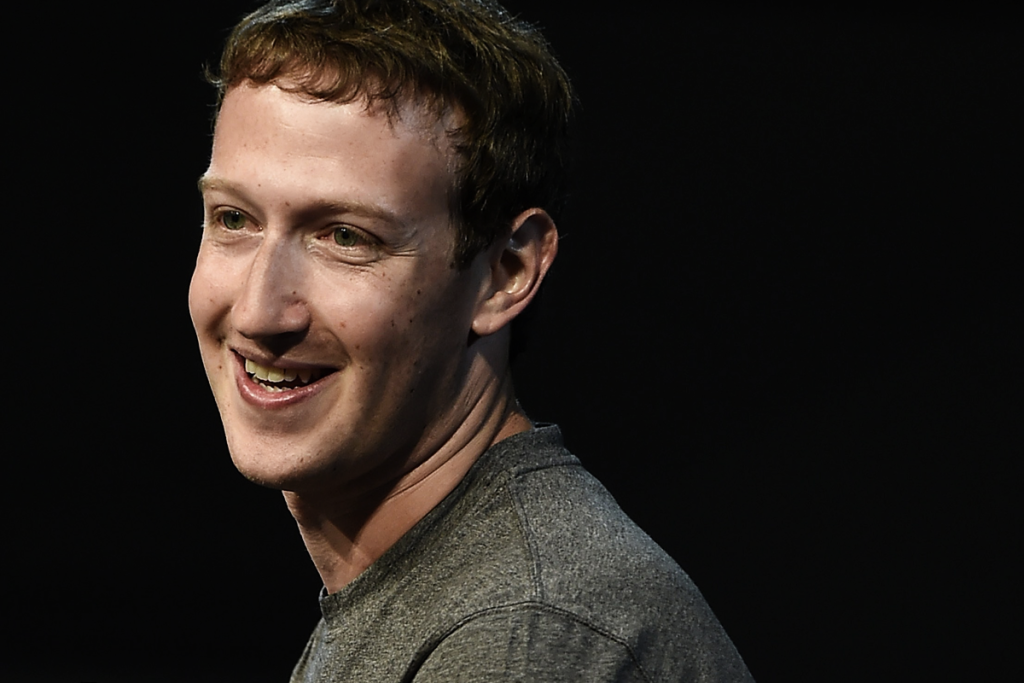
MARK ZUCKERBERG
FOUNDER, FACEBOOK
» BIO: The famously young Facebook CEO, born in 1984 and raised in the New York suburb of White Plains, attended Harvard, but dropped out to develop his now ubiquitous social networking site.
» TAKEAWAY: Look for ways to benefit society. Zuckerberg likes to evangelize for the mission-driven firm, and points to Facebook as an example: Its aim, he says, is to give voice to the voiceless. But take this utopian spin with a grain of salt, and remember Facebook’s origins as a site that encouraged Zuckerberg’s Harvard peers to rate one another as “hot or not.” That superficiality is still at the core of the service, but with 1.79 billion monthly active users, it doesn’t matter. Facebook is more or less what Zuck says it is: The best way for us to connect, whether we like it or not.
Photo by Ronaldo Schemidt/AFP/Getty Images






